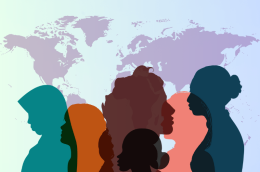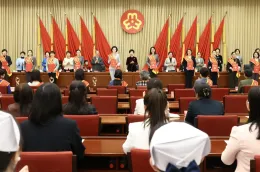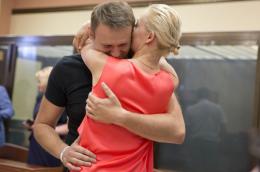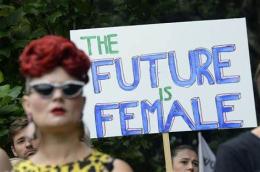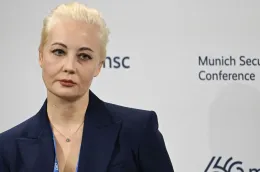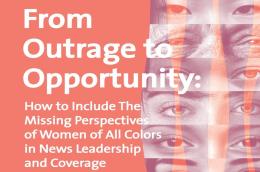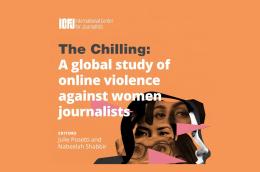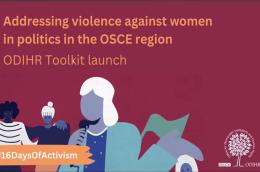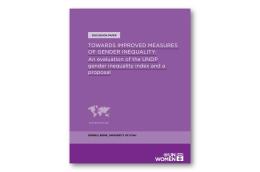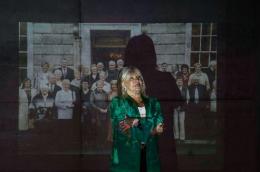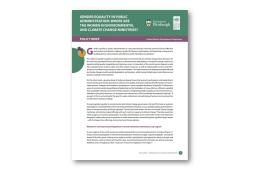Women's Leadership
Main navigation
In commemoration of International Women's Day, Global Voices is delving into the state of women's political participation around the world. This year, over 3 billion people are eligible to vote, making it the largest electoral moment in history. Women’s participation in this election year, whether through advocating for policies that benefit women and girls, turning out to vote, or outright running for office, can create significant and meaningful change and is an essential part of fostering gender equality around the world.
In this special coverage, we highlight the distinct stories, triumphs, and challenges faced by women in the political arena. While the strides towards gender equality have been significant, systemic barriers persist — often in the form of gender-based harassment or violence — hindering the full realization of women's political potential.
Already in the first quarter of the year, women politicians and voters from Argentina to Indonesia have faced unique gendered attacks and harassment for daring to participate in the political ecosystem. In many contexts, these harassment campaigns are launched because women are challenging the status quo and trying to reshape the political landscape of their nations away from oppressive patriarchal norms.
Read here the full article published by Global Voices on 8 March 2024.
Image source: Global Voices
Today, China joins the world in celebrating International Women’s Day. Mao Zedong once famously said that women hold up half the sky. According to World Bank data, China’s female labour force participation rate of more than 61 per cent is higher than many developed economies.
Chinese women work alongside men and contribute in almost every domain and at almost every level. All of China reaps the benefits of this participation and representation.
Unfortunately, one glaring exception is arguably the most important – high-level politics. Women have represented only a small percentage of the full members of the Communist Party of China’s Central Committee, with no clear upward trend and only slight fluctuations in this figure.
The past two decades represented the pinnacle of female representation in the Politburo, with one woman present among 25 members and even two between 2012 and 2017. But this is no longer the case, as the current Politburo includes only 24 men.
Read here the full article published by the South China Morning Post on 8 March 2024.
Image source: South China Morning Post
The shock of Alexey Navalny's death in the Arctic Yamal penal colony Harp on February 16, 2024, was felt by millions of people in Russia and abroad. The informal leader of the opposition to Putin, he was optimistic about his and Russia's future even after three years in jail and over 300 days in unbearable solitary confinement.
With his death has come an overwhelming, sense of hopelessness, as witnessed by the social media feeds of people with opposition views and people mourning his death at the funeral.
However, on February 19, only three days after the death of her husband, Yulia Navalnaya stepped in. In her first ever video posted on both her husbands and her own new X account and YouTube account, she said […]
For a lot of people, this meant that the hope returned.
Navalnaya has since given a speech at the EU Parliament, met with President Biden and the EU member states’ foreign ministers. She had just called for people in Russia to express their protest and show how many people would vote against Putin.
Read here the full article published by Global Voices on 8 March 2024.
Image source: Global Voices
NATO recognises the disproportionate impact that conflict has on women and girls, the vital roles women play in peace and security, and the importance of incorporating gender perspectives in all that the Alliance does. The Women, Peace and Security agenda was launched on 31 October 2000 with the adoption of United Nations Security Council Resolution 1325 and now includes nine additional Resolutions (1820, 1888, 1889, 1960, 2106, 2122, 2422, 2467 and 2493). NATO’s approach to the Women, Peace and Security agenda is framed around the principles of integration, inclusiveness and integrity.
Guiding principles
NATO’s common values of individual liberty, democracy, human rights and obligations under the Charter of the United Nations underpin the principle that the full rights and participation of women are essential. Drawing from the UN Security Council Resolutions (UNSCRs) on Women, Peace and Security (WPS), the Alliance works to address gender inequality by integrating gender perspectives through the Alliance’s three core tasks of deterrence and defence, crisis prevention and management, and cooperative security.
Three principles guide NATO’s work on WPS: integration, inclusiveness and integrity.
Read here the full article published by NATO on 7 March 2024.
Image source: NATO
It’s 2024, but power still looks like a man. Despite Australia’s claim to egalitarianism, achieving equal political participation and representation remains a formidable challenge for women. Concerningly, the persistent and ingrained obstacles in women’s way are affecting the aspirations of the next generation of female leaders.
According to 2022 research spanning 29 countries, including Australia, satisfaction among young females aged 15-24 with their leaders’ decisions on issues they care about stands at a mere 11%. An overwhelming 97% acknowledged the importance of political participation. Yet, only 24% of those aspiring to engage in politics could see themselves running for office.
Worse still, 20% have been personally discouraged from political involvement. This is often because they’re either considered to be less qualified or that they will inevitably face discrimination and gendered violence.
I crunched the numbers to assess the situation in Australia. While much has been said about the mistreatment of female leaders, how does this play into the psyche of female constituents?
Read here the full article published by The Conversation on 7 March 2024.
Image source: The Conversation.
It's often said that adversity doesn't build character, it reveals it. Borrowing from Eleanor Roosevelt's iconic comparison, women, like tea bags, only show their strength when in hot water. Today, amidst the boiling cauldron of global conflicts and political challenges, a new narrative is emerging - one where the resilience and determination of women are not just supporting roles but headline acts against male-dominated aggression.
In a world where headlines often speak of wars and conflicts, primarily led and perpetuated by men, the emergence of strong female figures in the realm of global politics offers a glimmer of hope. Take, for example, Yulia Navalnaya, who, following the murder of her husband Alexei Navalny, has become a formidable opponent to Vladimir Putin's regime. Navalnaya's transition from a life away from the limelight to being at the forefront of Russia's opposition movement underscores the potential of women's leadership in steering the world towards peace. Her courage, alongside the quiet strength of individuals such as Nikki Haley, who continues her political aspirations against figures like Donald Trump despite facing derogatory remarks, illustrates the pivotal role women can play in reshaping global politics.
Click here to read the full article published by BNN Breaking News on 23 February 2024.
Image source: BNN Breaking News
